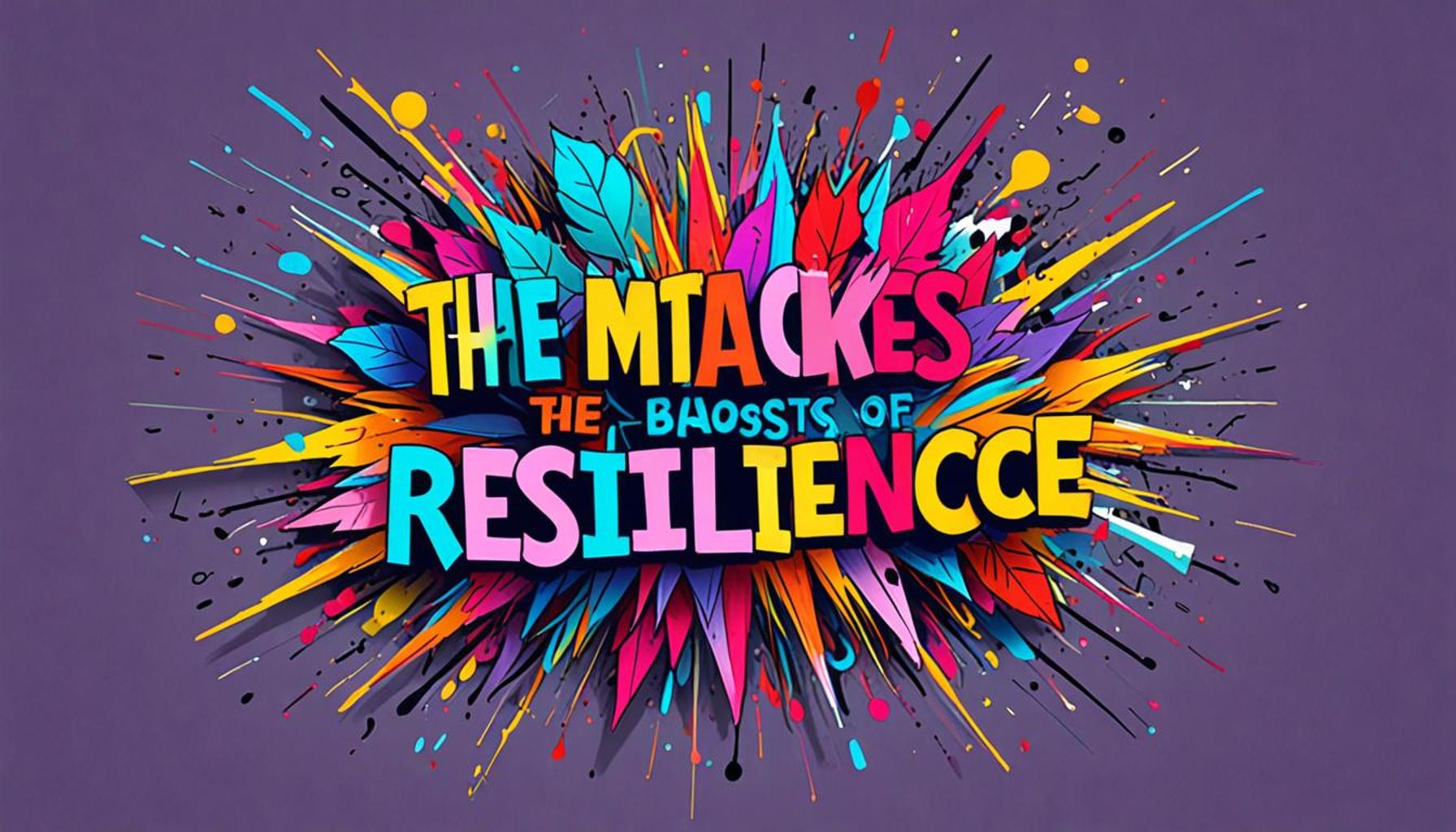Redefining Failure: How Reassessing Our Mistakes Can Foster Innovation

Understanding the Role of Failure in Innovation
In the fast-paced world of innovation, failure is often seen as the ultimate setback. Yet, this traditional perspective is shifting. More than ever, we are realizing that reassessing our mistakes can be the key to unlocking new opportunities. The notion that failure is a necessary part of the entrepreneurial journey is gaining traction, particularly in Nigeria, where economic challenges and infrastructural issues create a unique landscape for business.
Consider these reasons why embracing failure is crucial for innovation:
- Learning Experience: Each mistake provides valuable lessons that drive improvement. For instance, when a startup misjudges market demand, the resulting loss can lead to a more comprehensive understanding of customer needs. This process turns a setback into a learning opportunity, enabling entrepreneurs to tailor their offerings better.
- Creative Solutions: Re-evaluating failures often leads to unexpected breakthroughs. A noteworthy case is the story of Tolaram Group, which initially struggled with its instant noodles business in Nigeria. After analyzing their approach and addressing quality issues, they pivoted their strategy, ultimately creating a beloved product that now dominates the market.
- Cultural Growth: Acknowledging failures can cultivate a more resilient and innovative environment. In Nigeria, where entrepreneurs often face societal pressure to succeed, creating an open dialogue around failure can help build a community that encourages risk-taking and experimentation. This cultural shift fosters an atmosphere where innovation thrives.
In Nigeria, entrepreneurs face unique challenges that often lead to setbacks. However, many successful innovators have transformed their perceived failures into stepping stones. Notable figures such as Innoson Vehicle Manufacturing, Nigeria’s first indigenous car manufacturer, highlight how mistakes in business can lead to resilient and groundbreaking ventures. Initially facing fierce competition and skepticism, Innoson used feedback from his early failures to improve product quality and build a brand that resonates with consumers.
Moreover, the vibrancy of Nigeria’s tech scene provides an ideal backdrop for this discussion. With initiatives such as the Tony Elumelu Entrepreneurship Programme, countless entrepreneurs have the chance to learn from experienced mentors who emphasize the importance of resilience. As they navigate their business journeys, these budding innovators are encouraged to view failure not as a terminal roadblock but as part of the process of finding success.
As we explore the interplay between failure and innovation, we must acknowledge the importance of this reassessment process. By shifting our mindset, we can foster a spirit of creativity that drives progress and enhances entrepreneurial spirit within our communities. Engaging with failure allows individuals to cultivate a deep well of knowledge and experience, essential for leading successful ventures in an ever-evolving landscape.
Ultimately, by embracing failure, we can transform challenges into powerful catalysts for innovation, paving the way for new ideas and groundbreaking solutions that can benefit Nigerian society and beyond.
ADDITIONAL INSIGHTS: Expand your understanding here
The Transformative Power of Failure
In an ecosystem rich with potential and laden with hurdles, redefining failure becomes not just a necessity but a strategy for success. For many Nigerian entrepreneurs navigating a landscape of economic uncertainty and fluctuating markets, the fear of failure can be paralyzing. However, by strategically reassessing mistakes, these innovators are discovering that the very obstacles that once thwarted their ambitions can be transformed into tools for growth and inspiration.
One of the most compelling reasons to embrace failure lies in its inherent ability to offer profound learning experiences. Each setback serves as a case study, providing entrepreneurs with critical insights that are often overlooked in the glossy narratives of success. For instance, a fashion startup that miscalculates the price point of its collection can learn from a decline in sales, using this knowledge to refine its approach to future lines, thus standing a better chance of resonating with its target audience. This cycle of experimentation and adaptation is vital for innovation.
Moreover, reassessing our failures can lead to creative solutions that may have otherwise remained undiscovered. The narrative of Jumia, a prominent e-commerce platform in Nigeria, exemplifies this dynamic well. Initially grappling with logistical challenges and inconsistent service delivery, the team dedicated itself to critically analyzing customer feedback and revising its operational strategies. This commitment to learning from earlier mistakes ultimately enabled Jumia to enhance its service model, paving the way for a more robust and reliable shopping experience that continues to attract millions of users across the continent.
Encouraging a culture where innovation and experimentation flourish requires a shift in mindset. In Nigeria, where a culture of risk aversion often prevails, fostering a dialogue around failure can help dismantle the stigma associated with mistakes. Entrepreneurs must feel empowered to share their experiences, creating a collaborative environment where collective learning is prioritized. Here are several ways this can be achieved:
- Mentorship Programs: Platforms that connect young innovators with experienced business leaders can provide a space for discussing failures as integral components of the learning process.
- Workshops and Seminars: Regular events focused on sharing stories of failure and recovery can normalize setbacks and illustrate practical strategies for overcoming challenges.
- Community Support Groups: Forming networks of entrepreneurs who openly discuss their hurdles can foster a supportive atmosphere where members encourage each other’s growth.
As seen through various success stories, failure acts as a catalyst that propels entrepreneurs toward the realization of their vision. Companies like Flutterwave and Paystack, which have become global leaders in fintech, often point to initial failures as milestones that informed their subsequent decisions. By creating an environment that values the lessons of failure, we can catalyze innovation that not only transforms individual businesses but also contributes to a thriving economy.
In recognizing failure as a stepping stone rather than a stumbling block, Nigerian entrepreneurs stand on the brink of a revolutionary approach to innovation—one that promotes resilience, creativity, and ultimately, success.
Redefining Failure in a Productive Context
Failure, often viewed as a setback, plays a pivotal role in driving innovation when reassessed constructively. The conventional perspective on failure typically hinges on immediate consequences and potential loss. However, embracing failure as a stepping stone can lead to remarkable advancements in creativity and problem-solving. This mindset shift encourages individuals and organizations to view their missteps not just as obstacles, but as essential experiences that provide invaluable insights.
Many successful innovators, from technology moguls to creative artists, credit their greatest advancements to lessons learned from their failures. For instance, Thomas Edison famously stated, “I have not failed. I’ve just found 10,000 ways that won’t work.” Such a viewpoint encourages a culture of experimentation, where taking risks is an integral part of the learning process. Organizations adopting this approach often foster an environment where team members feel safe to propose bold ideas without the intimidating shadow of potential failure limiting their creativity.
Moreover, reassessing failures can lead to significant strategic pivots. When companies analyze what went wrong in failed projects, they uncover patterns that can inform future initiatives. This analytical approach not only helps in refining product designs but also opens up new avenues for market exploration. For example, firms that pivoted from underperforming products towards ideas inspired by previous shortcomings have thrived, turning what could have been a detrimental experience into a foundational success.
The integration of failure analysis into innovation processes has also been documented in various fields, such as technology, education, and healthcare. By implementing structured debriefing sessions, organizations can systematically dissect failures, ensuring that each misstep is transformed into a stepping stone for future success. This leads to the development of more resilient teams equipped with the knowledge and confidence to push boundaries.
| Category | Benefits of Embracing Mistakes |
|---|---|
| Innovation Drive | Facilitates creative problem-solving by viewing mistakes as learning opportunities. |
| Strategic Learning | Informs future projects with data-driven decisions through detailed analyses of past failures. |
Ultimately, redefining failure is about cultivating a mindset that prioritizes growth and resilience. As more individuals and organizations embrace this philosophy, we will likely witness an era where innovation flourishes, unbounded by the fear of making mistakes.
ADDITIONAL INSIGHTS: Expand your understanding here
Innovative Industries Fueled by Failure
In redefining failure, we uncover the rich tapestry of innovation that thrives in industries across Nigeria. Whether in technology, agriculture, or the burgeoning entertainment sector, the ability to reassess mistakes fosters creativity and growth, effectively transforming setbacks into opportunities. As the landscape of failure evolves, innovative approaches are emerging that push the boundaries of entrepreneurship.
Take the tech industry, for example, where startups often face the daunting challenge of scaling their solutions in an unpredictable market. A notable case is the story of Andela, a company that trains software developers and connects them with global employers. Initially, Andela faced criticism for its model, which was perceived as unsustainable. Rather than retreating, the founders re-evaluated their approach, integrating feedback from both students and partners to refine their curriculum and service offerings. This pivot not only solidified their position in the tech realm but also contributed to an ecosystem that is now flourishing with trained developers eager to tackle local and global challenges.
Furthermore, the agricultural sector has witnessed transformative innovation through reassessment of failure. Farmcrowdy, a Nigerian agritech platform, initially struggled with farmer recruitment and low yield outputs in its first year. Instead of viewing these challenges as insurmountable, the founders delved into the root causes, engaging with farmers to better understand their needs and the obstacles they faced. By iterating on their model to include comprehensive training for farmers and improving access to necessary resources, Farmcrowdy’s subsequent successes demonstrate how a failure-driven approach not only revitalizes a business but also promotes food security in Nigeria.
The Nigerian entertainment industry, particularly Nollywood, is another arena where learning from failure has led to innovation. Filmmakers, often operating on tight budgets, initially faced setbacks due to production pitfalls or unresponsive audiences. For instance, the 2016 film “The Wedding Party” was born from an earlier disappointment in a dramatic production that did not resonate with viewers. Analyzing audience feedback and financial outcomes, the filmmakers opted for a light-hearted narrative infused with relatable themes. This reevaluation led to an explosive success, grossing millions at the box office and setting a new standard for Nigerian films, illustrating that entertainment can be both commercially viable and culturally significant.
A critical enabler in this movement is the role of digital platforms, which provide a data-rich environment for entrepreneurs to assess failures and iteratively improve their approaches. Social media analytics, customer feedback, and market research tools allow businesses to sift through performance metrics, aiding them in making informed decisions. Such data-driven insights are invaluable for entrepreneurs who seek to turn failures into tactical experiments, ultimately fostering a culture of resilience essential for lasting innovation.
Additionally, building connections through networking initiatives encourages entrepreneurs to share their failure stories, amplifying collective wisdom. Conferences and summits focused on lessons learned from past failures act as incubators of new ideas, enabling participants to innovate without the fear of negative repercussions. This concerted effort to dismantle barriers and foster open dialogue cultivates an environment ripe for breakthrough ideas.
As Nigerian entrepreneurs continue to harness the transformative power of reassessing their failures, they craft a narrative not solely limited to success, but one that celebrates the beauty of innovation borne from resilience. With every challenge faced and each lesson garnered, they lay the foundation for a thriving economy that embraces not just ideas, but the underlying lessons that breathe life into those visions.
RECOMMENDED: Check out this similar article
Embracing Failure as a Catalyst for Innovation
In the ever-evolving landscape of entrepreneurship, particularly in Nigeria, redefining failure has emerged as a critical approach to drive innovation and resilience. By reassessing our mistakes, businesses are empowered to transform setbacks into stepping stones for success. This new outlook not only cultivates a culture that embraces risks but also promotes a mindset that values learning and adaptation over perfection.
As exemplified by success stories from industries such as technology, agriculture, and entertainment, the willingness to confront and learn from failure leads to remarkable breakthroughs. Companies like Andela and Farmcrowdy have thrived by listening to their stakeholders and refining their models based on past experiences, demonstrating that obstacles can indeed be opportunities. Similarly, the creative narratives born from reassessing past disappointments in Nollywood reveal how innovation can resonate deeply within cultural contexts, subsequently enhancing the industry as a whole.
Moreover, the advent of digital tools that provide analytical insights enhances our ability to understand failure and map out strategies for improvement. These innovations foster a supportive community where shared experiences become invaluable resources for individual and collective growth. As entrepreneurs continue to engage in open dialogues about failure, they pave the way for a collaborative environment rich in innovation.
In conclusion, the journey of reassessing failure transcends mere business strategy; it reflects a profound cultural shift. By valuing the lessons embedded within our missteps, Nigerian entrepreneurs are not only fostering innovation but are also contributing to a resilient economy poised to tackle future challenges. This redefining of failure marks not the end, but rather the beginning of a vibrant era of creativity and progress.


